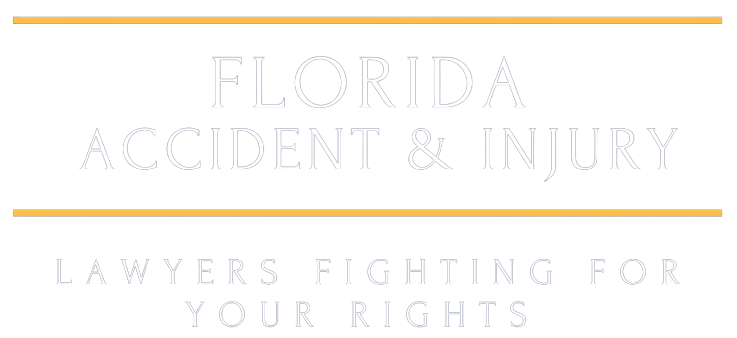Understanding Workers’ Compensation in Florida
Workers’ compensation in Florida benefits employees who have been injured or become ill due to their work. The benefits include medical treatment, wage replacement, and other assistance. Here are some key points to understand about workers’ compensation in Florida:
- Florida law requires most employers to provide workers’ compensation coverage for their employees.
- Employees should report the injury or illness to their employer immediately. Failure to report within 30 days could result in losing the right to workers’ compensation benefits.
- The employer or the employer’s insurance company will choose the healthcare provider for the injured employee to receive the necessary medical treatment.
- The workers’ compensation benefits are based on the severity and length of the injury or illness.
- Workers’ compensation laws can be complex and vary by state, so it is important to seek legal advice if you have questions or need assistance.
Personal Injury Claims in Florida
Florida’s personal injury claims are often related to workplace accidents. In Florida, workers’ compensation insurance usually covers personal injury claims. This means that if you are injured on the job, you may be entitled to compensation for medical expenses and lost wages, regardless of who was at fault for the accident. It’s important to report your injury to your employer as soon as possible and seek medical treatment promptly. If you’re facing a personal injury claim, it’s advisable to consult with a workers’ compensation lawyer to ensure that your rights are protected.
What qualifies as a Work Injury in Florida?
In Florida, a personal injury is any bodily harm, mental or emotional injury suffered due to the negligence or intentional actions of another party. Some common examples of personal injuries in Florida include slip and fall accidents, car accidents, medical malpractice, and injuries sustained at the workplace. It’s important to note that not all workplace injuries automatically qualify as personal injuries, as they may be covered under workers’ compensation. If you believe you’ve suffered a personal injury and are seeking compensation, it’s crucial to consult a qualified personal injury attorney to assess your situation.
The process of filing a Florida workers’ compensation claim
You first have to report your injury to your employer, and they should provide you with the proper forms to fill out. In Florida, you have two years from the time of your injury to file a claim. After submitting the forms, your employer’s insurance company will investigate your claim. If they approve it, you will start receiving benefits for your medical treatment and lost wages. If they deny your claim, you have the right to request a hearing before a judge to appeal the decision.
Importance of a workers’ compensation attorney in a work injury claim
Legal representation in workers’ compensation claims is important to ensure that your rights are protected and that you receive the full benefits you are entitled to. Here are some reasons why having a lawyer is important:
- Understanding of the law: Workers’ compensation laws can be complex and vary from state to state, so it’s crucial to have legal expertise to navigate the legal process.
- Maximizing benefits: A lawyer can help you secure the maximum benefits available to you, including compensation for medical bills, lost wages, and vocational rehabilitation.
- Protection from unfair treatment: Employers and insurance companies may try to minimize or deny your claim. Having a lawyer can protect you from unfair treatment and ensure you are treated fairly throughout the claims process.
- Legal advocacy: A lawyer can advocate on your behalf and represent your best interests in negotiations and court proceedings, if necessary.
Overall, legal representation is essential to ensure that you receive the full compensation you deserve following a workplace injury.
Common Workplace Injuries in Florida
Workplace injuries in Florida can range from slips and falls to repetitive strain injuries. The most common types of workplace injuries in Florida include:
- Back and spinal cord injuries
- Burns
- Fractures
- Head injuries
These injuries can occur in various work environments, including construction sites, warehouses, and offices. It’s essential for both employees and employers to be aware of the common workplace injuries to prevent them and to know their rights and responsibilities when such injuries occur.
Proving fault in personal injury cases
Proving fault in personal injury cases under Florida’s workers’ compensation system can be challenging. In these cases, the burden of proof is on the injured worker to demonstrate that their injury was caused by the negligence or wrongdoing of their employer or a third party. This often requires gathering and presenting evidence such as medical records, witness statements, and documentation of the incident. It’s crucial to work with a knowledgeable personal injury attorney who can help navigate the complexities of proving fault and advocate for your rights.
Potential benefits and compensation for injured workers
Under Florida law, injured workers may be entitled to benefits such as medical care, lost wages, and compensation for permanent impairments. The amount of compensation can vary based on the severity and nature of the injury. In some cases, injured workers may also receive vocational rehabilitation benefits to help them return to work. Workers’ compensation provides essential financial support to employees who have been injured on the job, helping them to cover medical expenses and make up for lost income during their recovery.
Navigating the legal system in Florida
Navigating the legal system in Florida can be complex, especially when it comes to workers’ compensation. It’s crucial to understand the specific laws and regulations in Florida that govern workers’ compensation claims. Here are some important points to consider:
- Florida has specific laws and regulations governing workers’ compensation claims.
- Navigating the legal system in Florida requires a clear understanding of the workers’ compensation process and the rights of the injured worker.
- It’s important to seek legal guidance from an experienced personal injury attorney who understands the intricacies of Florida’s workers’ compensation laws.
Understanding the legal system in Florida is essential for effectively navigating the workers’ compensation process.
Conclusion: Protecting your rights in Florida workers’ compensation cases
Protecting your rights in workers’ compensation cases is crucial for ensuring you receive the support you deserve. Remember these key points to safeguard your interests:
- Be proactive in reporting any workplace injury or illness to your employer promptly.
- Seek medical attention from an approved healthcare provider to document your condition accurately.
- Keep detailed records of all medical treatments, expenses, and missed workdays related to your injury or illness.
- Familiarize yourself with your legal rights and maintain communication with your employer and their insurance company throughout the process.
- Consider seeking legal guidance from a qualified personal injury attorney specializing in workers’ compensation cases to advocate for your rights effectively.




